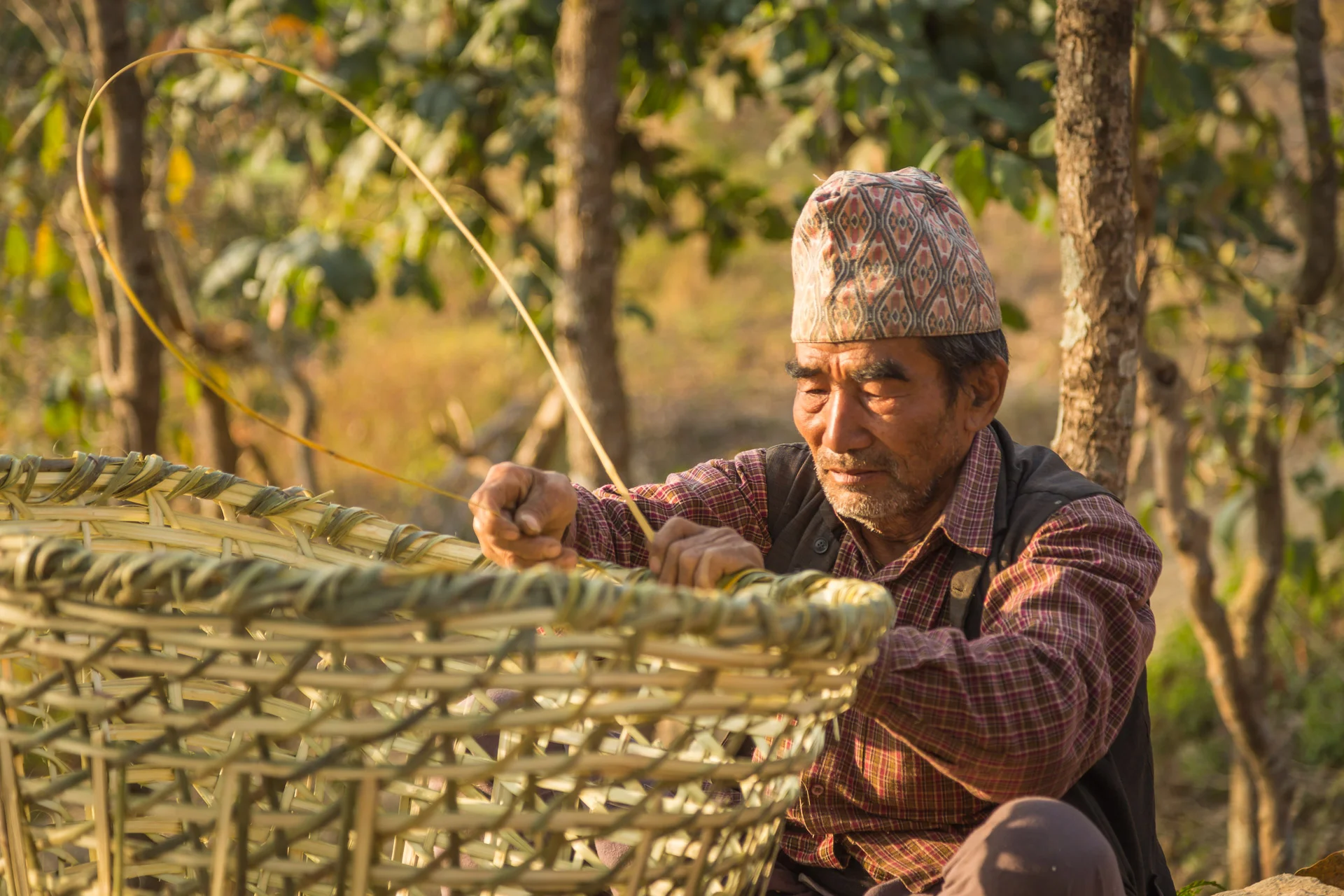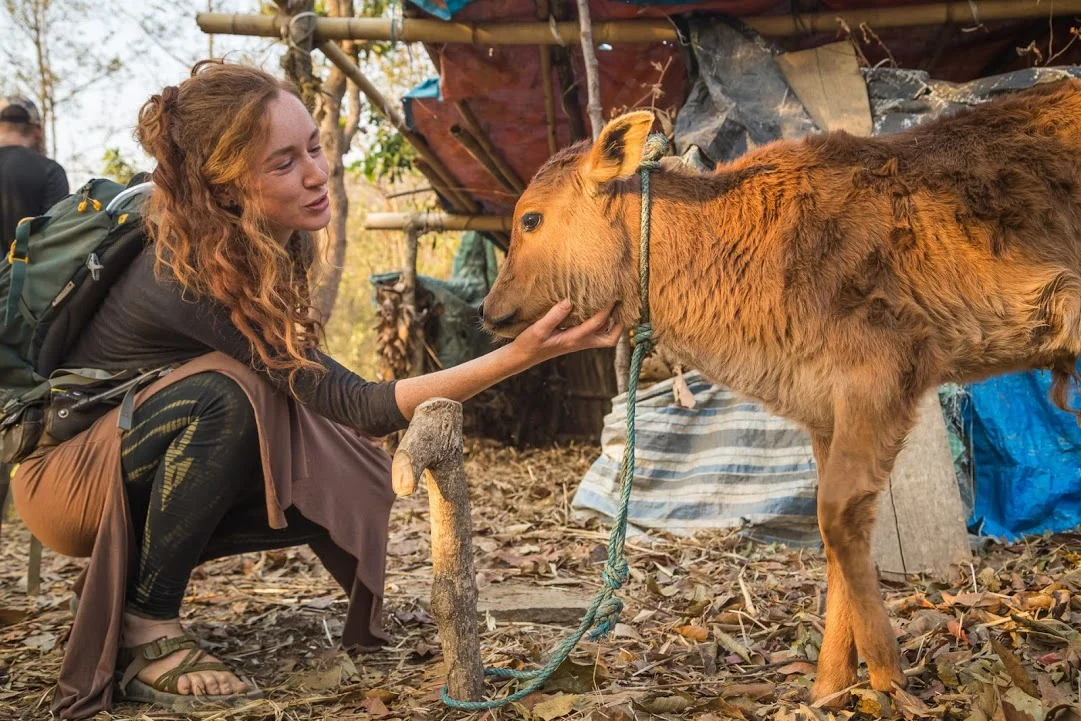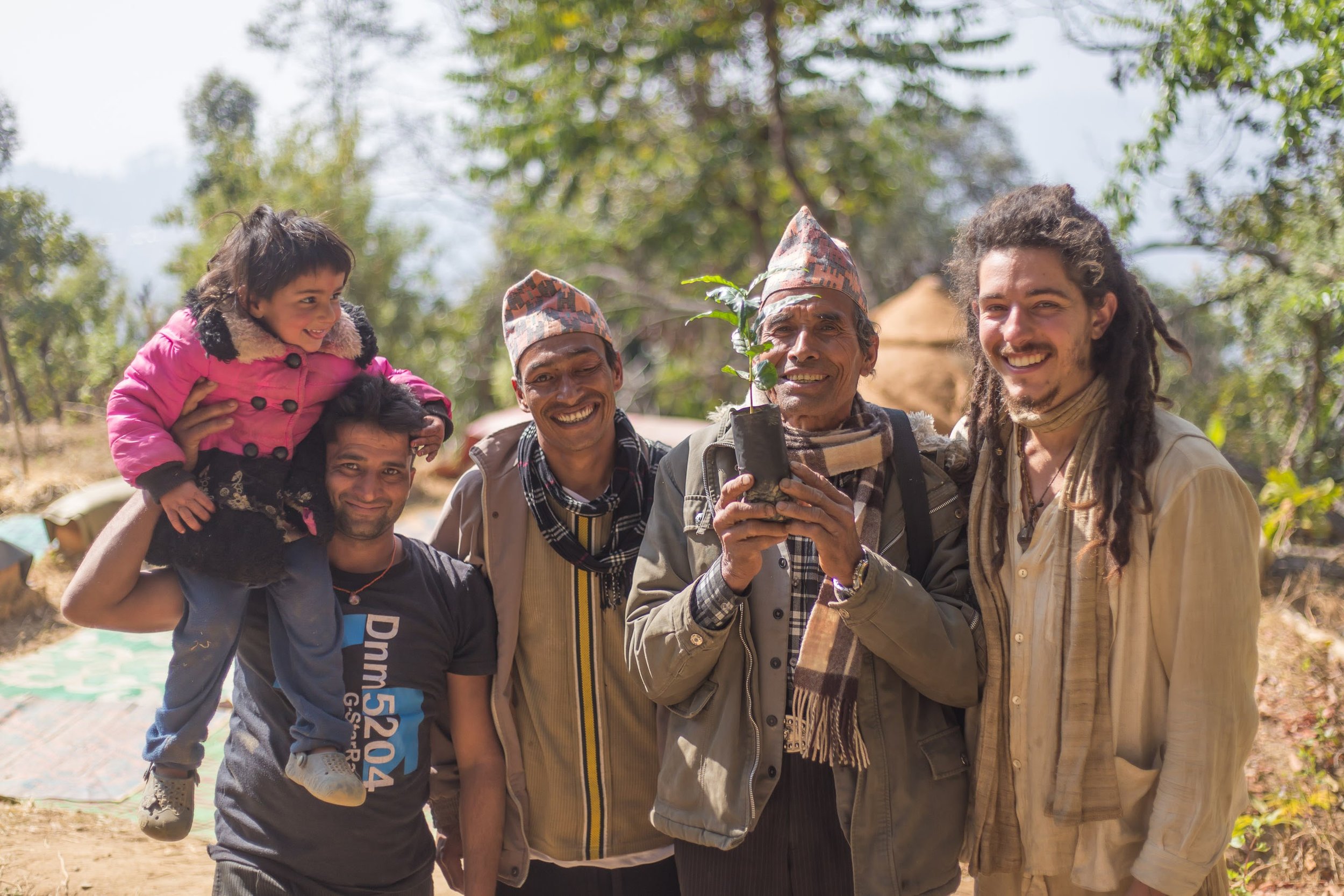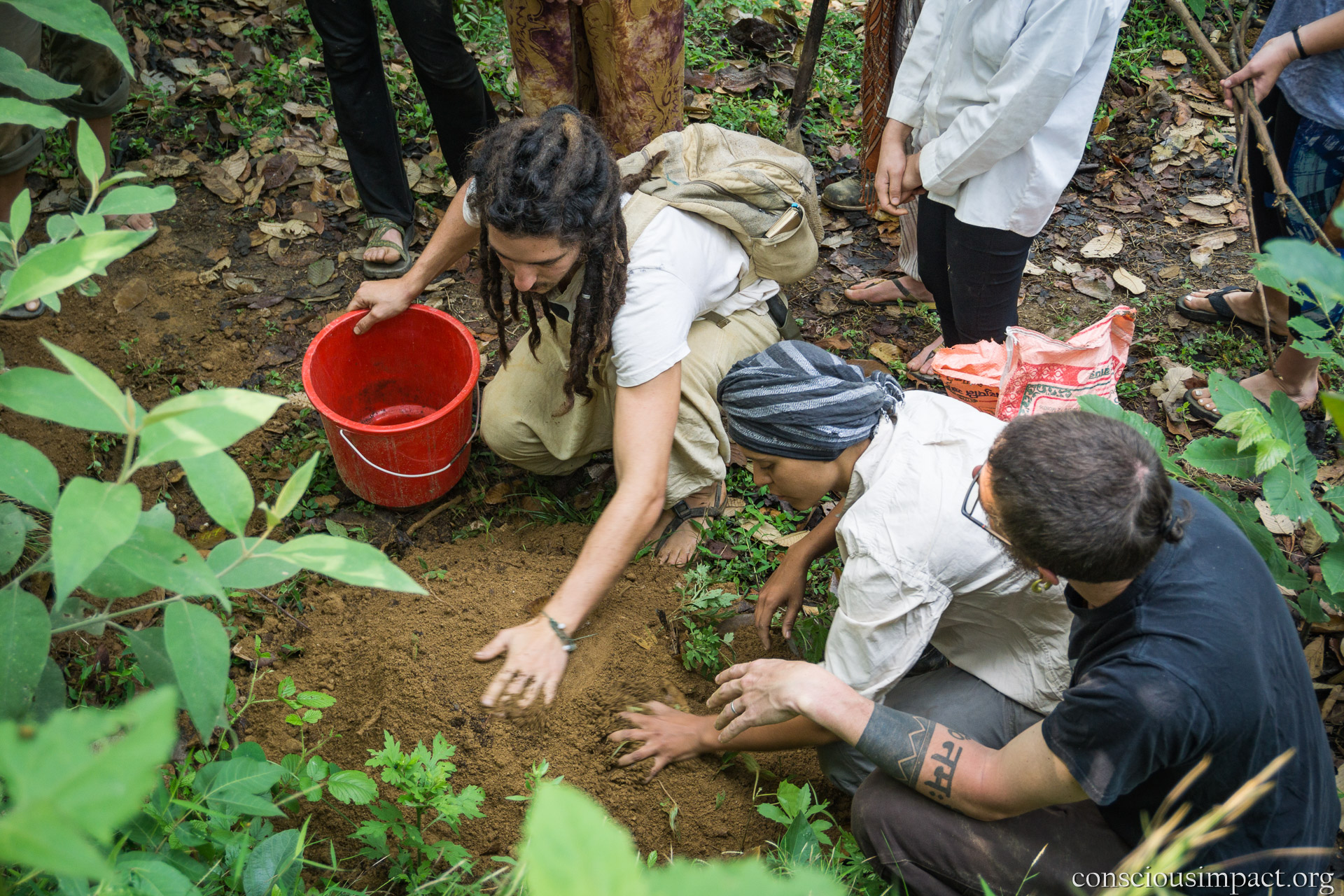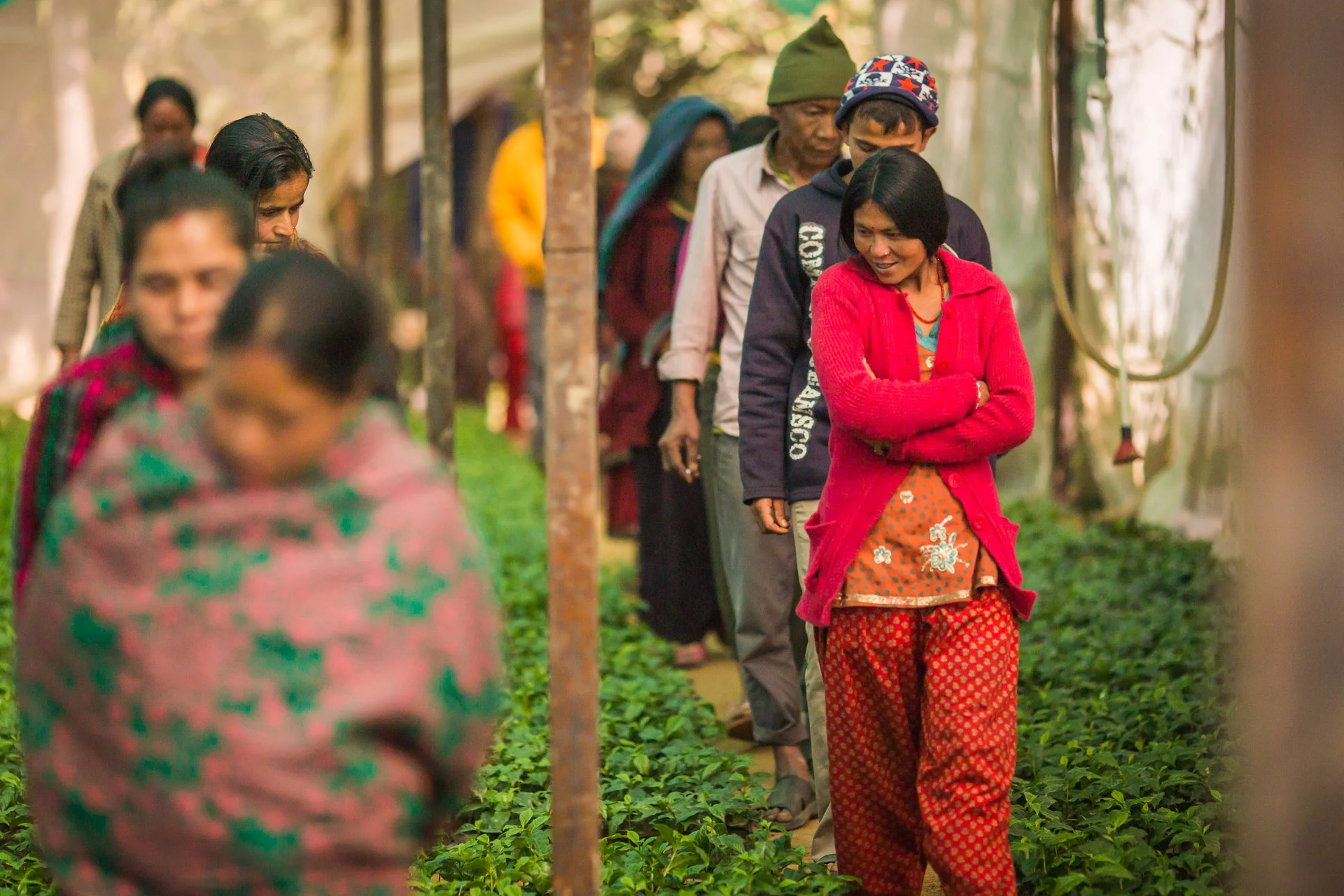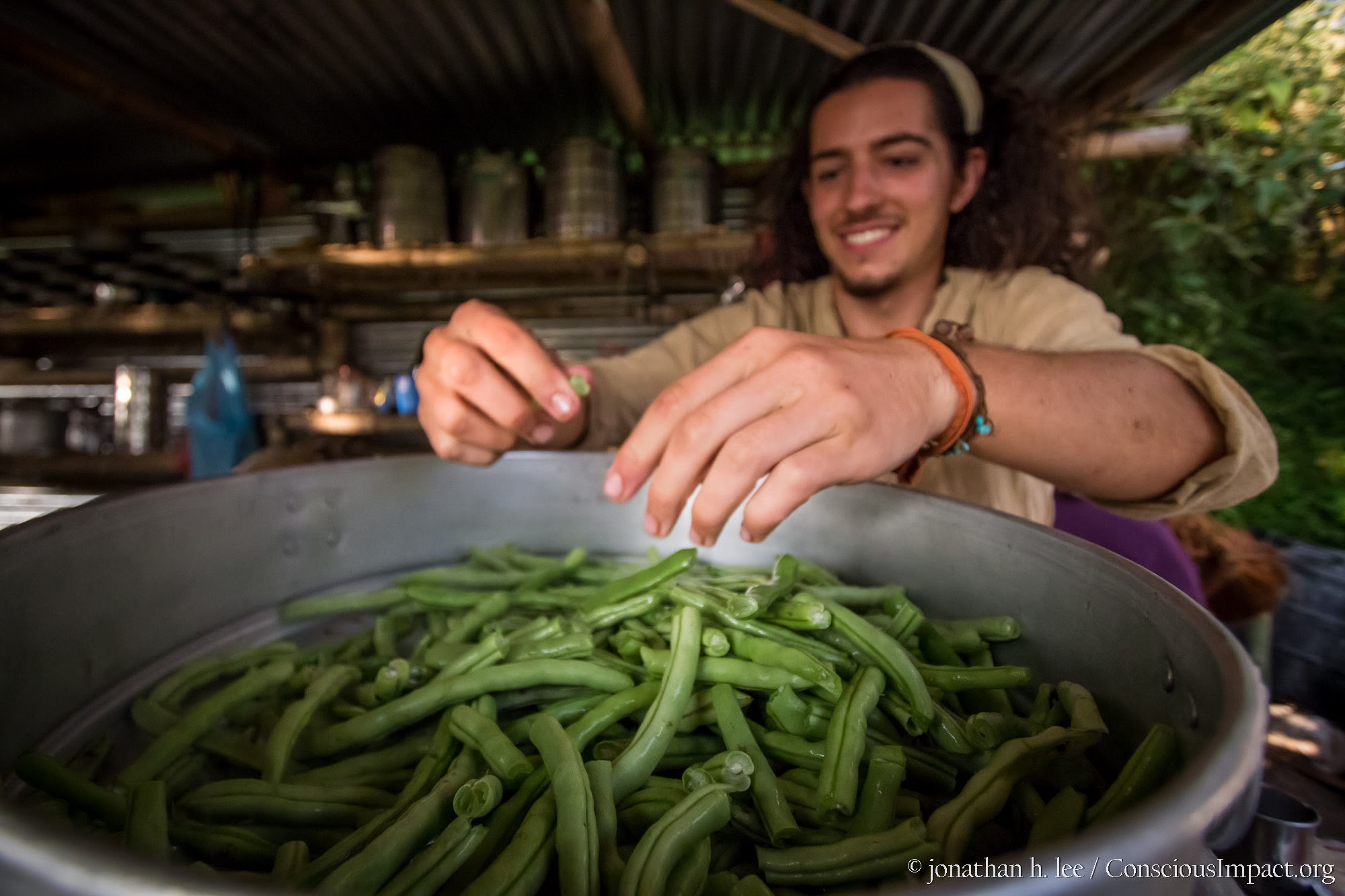Join us in Takure, Nepal for Conscious Impact's 3rd Annual Yoga Retreat.
10 Days of Yoga and Service. November 6th - 15th 2017.
Fill Out an Interest Form Here.
1. Strengthen Your Yoga Practice
with Dharma Shakti
Dharma Shakti is a Yoga Instructor, Aryuvedic Practitioner, Pancha Karma Specialist, Licensed Massage Therapist, Kirtan Wallah, Owner and Founder of Yogalution Movement and Creator of Free Yoga on The Bluff.
Yogalution Movement is a socially active, donation-based yoga studio that specializes in community mobilization. The center is best known for 'Yoga on the Bluff' an outdoor, twice-a-day yoga donation based class that is open to everyone, regardless of their experience! This class inspired what would become Conscious Impact's Yoga for Nepal Retreat.
Dharma continues her studies with her many mentors and spiritual teachers, having a deeply rooted foundation in the Gaudiya Vaishnava Tradition, an ancient lineage, she studies and finds knowledge and wisdom in Vedic Sciences such as Bhakti and Jnana yoga, Spiritual Scriptures such as the Bhagavad Gita and ancient Yogic Wisdom of Patanjali’s Yoga Sutras are her biggest influences.
One of her many teachers, Tukaram Das Prabhu, whom which she studied with for 10 years, has had a very big impact on the way Dharma teaches Yoga and the way in which she delivers Yoga Philosophy in her classes. Without his guidance, she would not be the teacher she is today.
This year marks Dharma's third visit to the village of Takure for another beautiful 10 days of service.
2. Practice with a Community of Yogis from Across the Globe
Yoga for Nepal is Conscious Impact's 3rd annual yoga retreat in Takure, Nepal. Every year we welcome guest from countries all over the world. Expand your yoga practice with diverse knowledge from yogis across the globe. Practice together, hike together, cook together, volunteer together and create life lasting friendships. We pride ourselves in creating a volunteer community where everyone is encouraged and comfortable to express their truest selves. Spend your evening teaching your favorite workshop, or join in on other activities, sit in the tipi and share stories and poetry with your new friends. If you have an idea for a fun activity at camp, talk to us, we will help you set it up!
"However I was not prepared for the inner peace and contentment that I feel every day in this sacred place."
- Aoife Kane
3. Practice Seva Yoga (Selfless Service)
The act of selfless service leads to collective benefit and gain even though it is performed without regard for the outcome of the individual. In performing acts selflessly, one must confront his/her own difficulties, resistance and negativity. One learns to recognize personal thought patterns and behaviors, as well as different facets of his/her personality. Through this heightened self-awareness, one can surrender the aspects of his/her personality that are no longer serving him/her and find an inner peace which is not dependent on or influenced by external factors.
It is said that Seva yoga is a combination of Karma yoga, the yoga of action, and Bhakti yoga, the yoga of love and devotion. In practicing Seva yoga, one serves others with his/her actions and does it with an attitude of pure, selfless love.
"The essence of Seva yoga is said to be encapsulated by the roots of the word. Seva comes from the Sanskrit words saha, meaning “with that,” and eva, meaning “too.” Thus, seva means 'together with.'"
4. Practice Karma Yoga
"The intention when practicing karma yoga is to give selflessly for the good of others without thought of one's self or attachment to the results of one's actions. Acting in this way is considered the right way to approach service and it is said to purify the mind."
Karma yoga is an ancient concept. The path of karma yoga is described in the Hindu sacred text, the Bhagavad Gita. It is also taught by zen teachers.
Karma yoga is relevant to all yogis because, to some extent, everyone must undertake some actions during their lifetime. By practicing karma yoga, all of these actions, even the most mundane, can become part of one's spiritual path. Practicing karma yoga also means to fully accept one's dharma, or life’s duty, and to let go of selfish desires. In doing so, one sublimates the ego.
5. Strengthen Your Hatha and Bhakti Yoga Practice
BHAKTI YOGA
The intention when practicing Bhakti yoga is to devote one's self to the Divine that is in everything and, thus, to realize the union of the individual self with God. It is motivated by a love of God rather than a fear of negative repercussions or punishment and has been described as the sweetest of the yogic paths since it develops love and acceptance for all beings.
The Bhakti path of yoga is a path of the heart and practitioners may use chanting, devotional mantras, prayer, kirtan and rituals as part of their worship.
HATHA YOGA
Hatha yoga is the yoga tradition most familiar to Western culture. The term is derived from the Sanskrit ha, meaning "sun," and tha, meaning "moon." The practice aims to unite the active and receptive qualities represented by each celestial being.
Practitioners of Hatha yoga use physical alignment and breathing control to achieve an equilibrium between the active body and its universe. The resulting harmony manifests itself as physical strength, physiological health and emotional well-being.
6. Practice Yoga in the Himalayas
Takure is located in the foothills of the Himalayas just 60 km north/east of Kathmandu. Our camp is steps away from the Langtang mountain range and the dramatic views are a short hike away. Our classes are all held outdoors allowing you to breath in the mountain air, listen to animals in the jungle, and watch the dramatic sun set as you strengthen your practice. During the retreat we offer hikes through the local community and into the nearby mountains. Practice yoga as some of the highest peaks in the world look over you in the distance.
7. Spend Time With the Local Community
The Nepali community is rich in Hindu and Buddhist tradition. During festival season in the fall, we've been lucky enough to engage many festivities with the villagers. Last year, we assisted in the construction of a 40 foot bamboo swing, partook in festive feasts, and danced in the roads to the music of the Madal (nepali drum). In the afternoons, we can walk five minutes to the local tea shop to share cups of hot milk tea and laughs with community members while practicing our Nepali.
8. Daily Yoga Classes, Meditation, Chanting, Vegetarian Meals and More!
SIGN UP HERE
(This is not a deposit and does not count as an official attendance. This is an interest form so we can begin planning your journey in Nepal. Sign up, ask questions, request a phone call, and learn more! We look forward to seeing you in Nepal!)














































